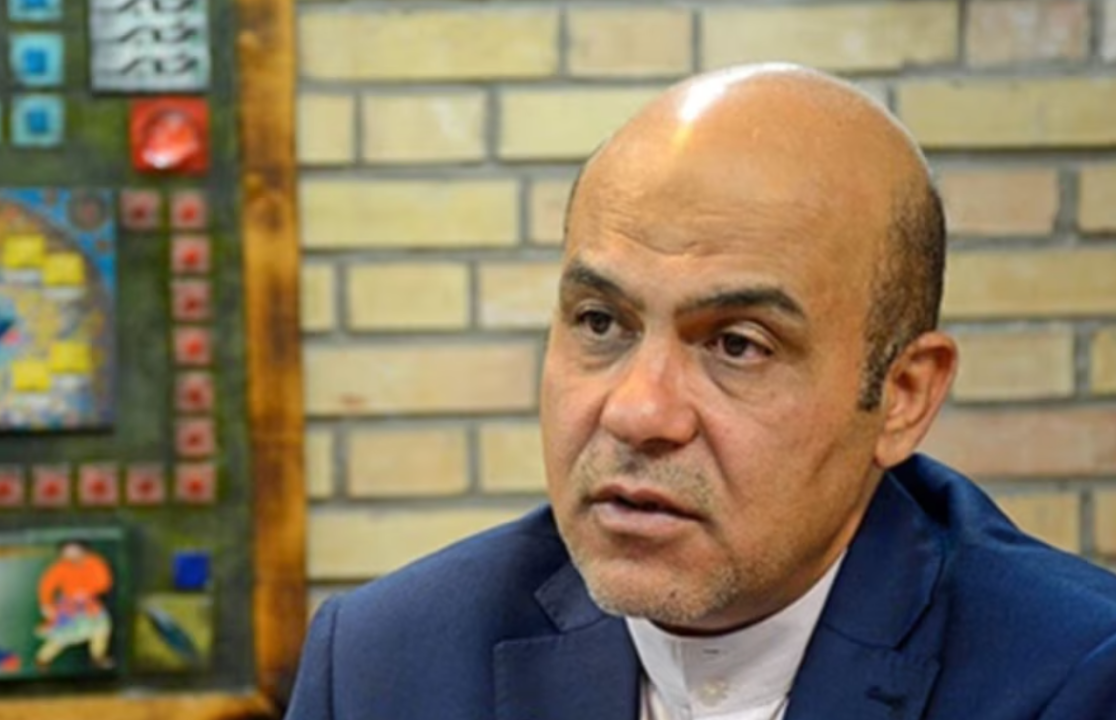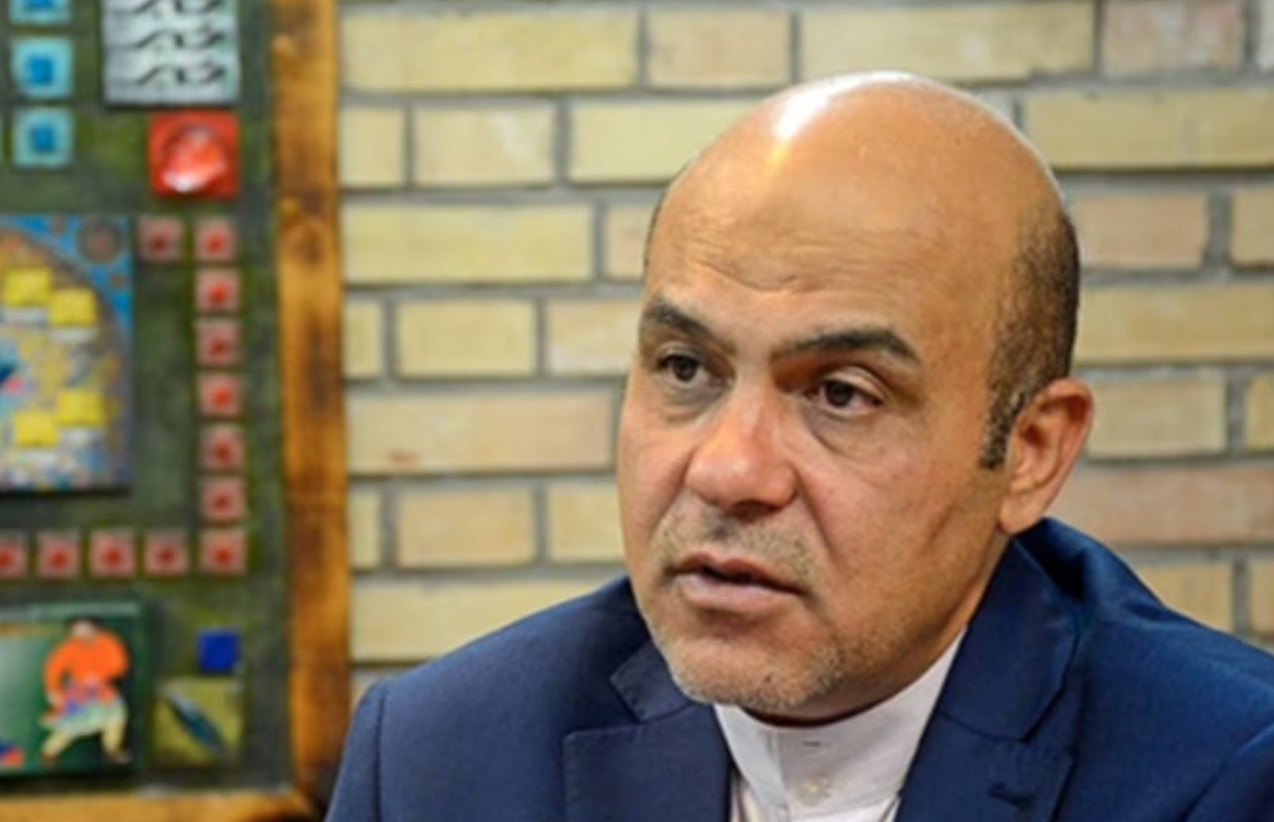UK officials from the Prime Minister downwards have condemned the execution of Iran’s former deputy defence minister, a dual British-Iranian national, in the strongest of terms. The Prime Minister, Rishi Sunak, has described it as ‘a callous and cowardly act, carried out by a barbaric regime’. The chair of the Commons Foreign Affairs Committee, Alicia Kearns, said it was ‘another horrifying example of the Iranian regime… weaponising British nationals and industrialising hostage taking,’ And the Foreign Secretary, James Cleverly, warned of consequences, saying it would ‘not stand unchallenged’. There will doubtless be a lot more condemnation from London in the hours and days to come.
Alireza Akbari had been charged with spying for the UK, tried in secret and sentenced to death. He had adamantly denied the accusations, saying, in a final smuggled video obtained by the BBC’s Persian Service, that a filmed confession had been extracted only after many hours of torture. The Iranian judiciary’s news outlet confirmed his death by hanging on Saturday morning, without giving a date or a time.
On the face of it, Akbari’s execution looks like another defeat for the UK’s preferred softly-softly response to the arrests and kidnappings of British nationals overseas. His plight was only made public in what turned out to be his last days. His name had gone unmentioned as the names of Nazanin Zaghari-Ratcliffe and Anoosheh Ashoori featured in the headlines; it remained unmentioned after they were released. Both sides, it would appear, regarded the stakes as high.
Whatever the truth, much remains sketchy. Akbari was a deputy defence minister in Iran between for several years. Sometime (unspecified) he left the country and, on some also unspecified date, he obtained UK citizenship. What he did and what resources he lived off in those years is not clear. In 2019 he travelled back to Iran, on an invitation to advise government officials, only to be arrested in what appears to have been a classic trap.
Akbari’s fate serves to highlight the dire state of UK-Iran relations
Throughout, there was government and media silence. Here was a former senior Iranian official, now a British national, languishing in an Iranian jail on spying charges, but until his family were invited last week to a parting meeting, his case was kept entirely under wraps.
Missing details, however, do not mean that there are not conclusions to be drawn. First, Akbari’s fate serves to highlight the dire state of UK-Iran relations, after the brief flicker of warming last March, when Zaghari-Ratcliffe and Ashoori were released. Their freedom followed the UK’s agreement to pay a long-standing debt – as Iran had demanded. But payment appears not have bought any lasting goodwill. Akbari’s execution shows that the UK’s leverage with Tehran is zero.
A second conclusion is the enduring suspicion that attends Iranian attitudes to the UK, and in particular its intelligence activities. This may be traced a lot further back than the UK-inspired plot to oust Iran’s elected Prime Minister, Mohammad Mosaddegh, in 1953, but it is has not gone away. All westerners arouse suspicion, but British citizens especially so, and dual nationals – with what is assumed to be at best their dual allegiance – still more.
Which leads to a third conclusion. Akbari’s death, even after intensive last-minute appeals by the UK government, highlights the liabilities of dual citizenship and the difficulties for governments everywhere when dealing with dual nationals in trouble in their ‘other’ country. Some governments might protest more loudly than others but if – as with Akbari, Zaghari-Ratcliffe and others – someone travels to a country where they hold a passport, they will be treated as citizens, not as foreigners. They will not be entitled to visits from their second country’s diplomats, nor will appeals from that second country carry any official weight.
The advantages of dual citizenship, including ease of travel, are one thing. But for those who have sought refuge in another country, going ‘home’ could present risks. Given this, it seems astounding that someone with Akbari’s history and status risked a return to Iran. In some ways, it shows the pull of an original homeland and, as with Zaghari-Ratcliffe and so many others, of family ties.
Most of all, though, Akbari’s fate highlights the dilemma of families and governments when faced with a citizen held in a hostile country. Alistair Burt, a former minister for the Middle East and North Africa, admitted on BBC Newsnight that it was impossible to know whether confidentiality or publicity might be the more productive approach. It might also be added more generally that the UK’s official refusal to pay ransoms, ‘give in’ to hostage-takers, or ‘talk to terrorists’ can limit its options.
One strand of thinking in relation to Akbari’s case is that this is the regime trying to send the message that a foreign hand is directing Iran’s current protests against Islamic rules. Another is that hardliners in Iran’s theocracy might have wanted to counter the impression of weakness in the face of the current unrest, and that Akbari’s death penalty sends a warning to more liberal elements in the leadership, given his past political allegiances.
That may or may not be so. In the end, Alireza Akbar’s death has to be seen first and foremost as the tragedy that it is for his family. But it has also to be seen as an expression of the accumulated distrust and hostility that have so long marked relations between Tehran and London, and show no sign of fading soon.







Comments